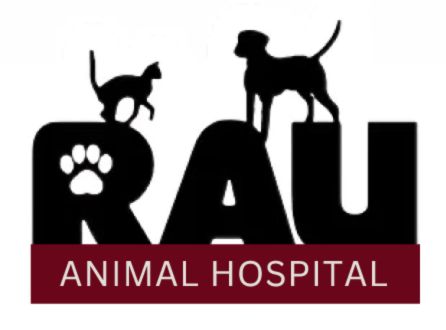
It is important to realize that your dog will never tell you when it is experiencing dental pain. All dogs will endure some level of dental disease and dental pain during their lives. The best way to minimize these issues for your dog is to start with a great dental health routine at home. This should be supplemented with regular dental cleanings performed by veterinary professionals (a veterinarian and veterinary nurse to aid in the dental cleaning and patient care during the procedure).
Proper dental care at home consists of daily brushing. Just as with humans, dogs need the plaque and biofilm removed from their teeth on a daily basis to avoid dental disease. The vast majority of dogs will accept daily brushing by their owners. We are here to teach you how to brush your dog's teeth and provide you with the best brush and dental paste according to your dog's size and flavor preference. It can be a bonding experience for owners to brush their dog's teeth and the dog may come to really enjoy the process. However, not every dog will tolerate and not every person is willing or able to brush their dog's teeth, we can work with you to find the next best solution for home care.
During your regular veterinary visits, we will examine your dog's teeth and will show you the obvious lesions that need to be addressed. We are most concerned with signs of gingivitis, broken teeth, periodontal disease, and other painful dental and oral lesions. Our doctors may recommend a veterinary-supervised dental cleaning.
Signs And Symptoms Of Dog Dental Issues
The best way to prevent dog dental issues is to be proactive. Part of this process includes periodic dog teeth cleaning, but the other part requires vigilance on your part as the dog's owner. If your dog displays any of the following symptoms, you should schedule a veterinary appointment ASAP:
- Bad breath / Halitosis
- Problems eating, loss of appetite (only in the most severe cases)
- Red, swollen, bleeding gums (usually the molars in the back of the mouth)
- Loose, broken, missing teeth
- Blood in saliva or nasal discharge
- Lesions in mouth
Should you notice any of these symptoms, schedule a veterinary appointment right away.
Dog Dental Treatments
The dog dental care services provided here at Rau Animal Hospital begin with an examination by one of our veterinarians. If dental issues are found in your dog's mouth, our veterinarian will explain the situation and recommend the appropriate dental procedure.
Our veterinarians use a comprehensive 6-step protocol when performing a standard dog dental treatment. This protocol can be amended depending upon factors including preexisting medical conditions, or based on information gleaned during the examination itself.
Oral Surgery For Dogs
If oral surgery is necessary, it can provide your canine companion with a new lease on life. In these cases, your dog is dealing with significant pain and is compensating for it in a variety of ways. Our veterinary staff is capable of resolving a variety of oral maladies, including:
- Gingival surgery - including tumor removal and removal of excessive gum tissue secondary to periodontal disease
- Extensive extractions of impacted or damaged teeth
- Oral tumor removal
Our dog dental facility allows our veterinarians to precisely perform whatever oral surgical procedure is necessary, in order to help your canine companion live or regain a healthy and happy quality of life.
The Harsh Reality Of Periodontal Disease In Dogs
Periodontal disease in dogs is the most common clinical condition occurring in adult canines. By three years of age, most dogs have some evidence of periodontal disease. Unfortunately, other than bad breath, there are few signs of periodontal disease in dogs evident to dog owners and professional diagnosis often comes too late to prevent extensive damage. Periodontal disease in dogs, if left untreated, will lead to infected, nonviable teeth and significant dental pain.
However, we cannot overstate the fact that periodontal disease in dogs is fully preventable. The way to successfully do so is to schedule semi-annual dog dental exams and dog teeth cleaning appointments, By doing so, you are ensuring that your canine companion remains at a low risk for developing periodontal disease.
